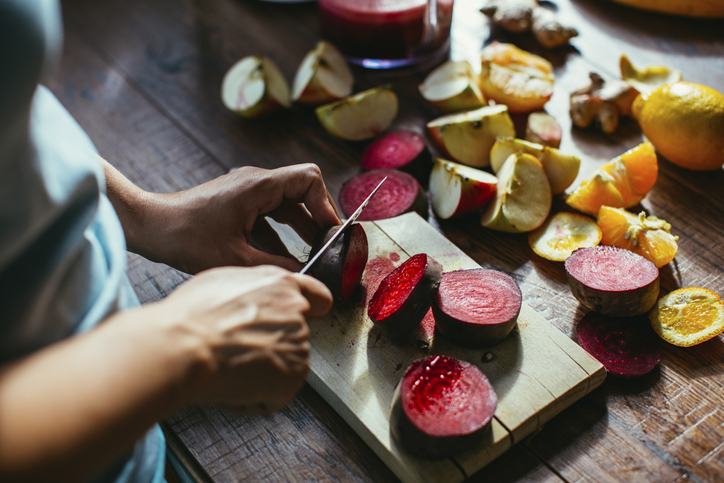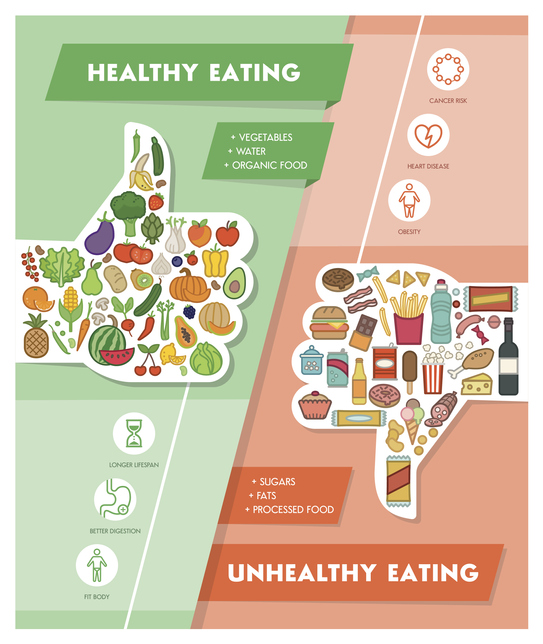Cutting Calories to Cut Cancer

By Joy Stephenson-Laws, J.D., Founder
Sixteen-year-old Angie Gaytan is battling something no 16-year-old should have to go through: leukemia.
Leukemia is a form of cancer that affects the blood and bone marrow. According to the National Cancer Institute, “[l]eukemia is cancer that starts in the tissue that forms blood. Most blood cells develop from cells in the bone marrow called stem cells. In a person with leukemia, the bone marrow makes abnormal white blood cells. The abnormal cells are leukemia cells. Unlike normal blood cells, leukemia cells don't die when they should. They may crowd out normal white blood cells, red blood cells, and platelets. This makes it hard for normal blood cells to do their work.”
Red blood cells carry oxygen from the lungs to the rest of the body, white blood cells fight infection and platelets clot the blood. Simply put, If we don’t have enough red or white blood cells or platelets, it makes it very difficult for us to stay alive. Leukemia is also the most common cancer found in children and teenagers.
But Angie and her doctors have a plan that is readily accessible and proving to be effective: healthy eating and exercising.

According to this Medical Xpress report that discusses Angie’s journey, eating foods such as beets, fruit shakes and other nutrient-rich plant foods is really helping. And she’s not the only one.
“Such a healthy diet helped more than Angie: A new study found that adopting a low-fat, low-sugar diet appeared to boost the effectiveness of chemotherapy in a group of 40 children that included Angie,” according to the report.
Usually, when people think of a low-fat, low-sugar diet, they think of deprivation and maybe even how they might feel hungry if they follow such a diet. When we think of “cutting calories,” we tend to think of all that we can’t have. In this particular situation, it’s really about replacing with healthier foods.
“In Angie's case, cutting calories meant eating her veggies by any means necessary.”
I always say that healthy food is medicine, and this is clearly a perfect example of that.
“We found that just these moderate changes in diet and increasing exercise a bit was able to make the chemotherapy more effective and reduce the chances of having leukemia left over after the first month by 70%,” said Etan Orgel, a pediatric oncologist, referenced in the Medical Xpress report mentioned earlier.
Regarding exercise for Angie, a physical therapist designed an exercise regimen with a goal to burn 10 percent more calories than her current activity level.
“For Angie, this meant long walks with her parents, as well as some video-guided exercise programs in the living room.”
Check out this pH Labs blog about a woman with leukemia who exercised during treatment and found that doing this put her immune system in a better position to fight the cancer. A doctor mentioned in this blog said that evidence has shown that lifelong exercisers have a better ability to produce new immune system cells, compared to people who are sedentary.
So whether you have cancer or not, it is clear that healthy eating and exercise may go a long way in both the prevention and management of cancer. Keep in mind that every cancer diagnosis and prognosis are different. You always want to seek the advice of your doctor regarding diet/nutrition and physical activity if you have cancer.
Foods to avoid.Processed and ultra-processed foods are inflammatory foods (they promote inflammation throughout the body), so it’s best to avoid these foods as much as possible. Inflammation is believed to be a major contributor to all types of cancer. Salami, bacon, white bread, candy, soda, chips and frozen pizza are examples of processed and ultra-processed foods. These foods are generally nutrient-void and have excessive sugar, salt and unhealthy fats.
I also highly advise taking routine nutrient tests in order to determine if you have any nutrient imbalances or deficiencies. Most of us do, and it is harder for our immune systems to work at their full potential and fight off disease if we are not nutritionally balanced. If the test reveals you are not balanced, a competent healthcare professional can work with you on making the necessary dietary changes and recommend quality supplements if necessary.
Finally, check out my friend’s incredibly inspirational story on how he fought colon cancer through body, mind and spirit.
Enjoy your healthy life!
Disclaimer: This article is not intended to provide medical advice. Please consult with your doctor or another competent healthcare practitioner to get specific medical advice for your situation.
The pH professional health care team includes recognized experts from a variety of health care and related disciplines, including physicians, attorneys, nutritionists, nurses and certified fitness instructors. This team also includes the members of the pH Medical Advisory Board, which constantly monitors all pH programs, products and services. To learn more about the pH Medical Advisory Board, click here.







